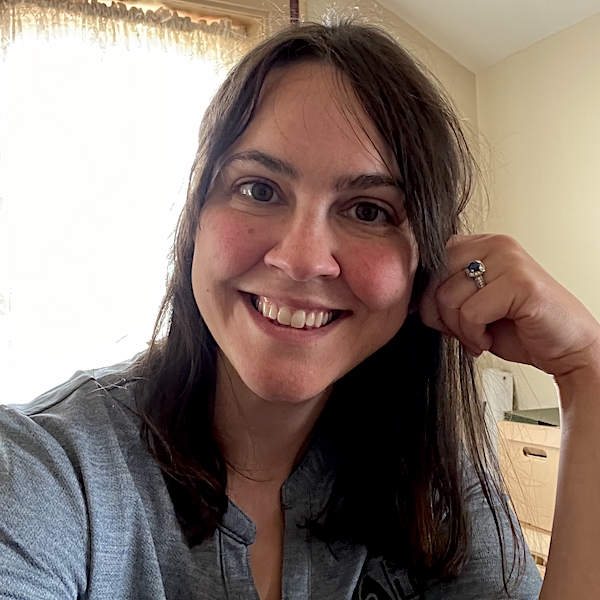Karen Turk, Librarian I

I'm proud to say that my education at Wayne State has helped me stay employable in a field that has changed drastically since I first graduated in 2007.
After receiving her MLIS in 2007, Turk returned to Wayne State's School of Information Sciences in 2019 and received a graduate certificate in Archival Administration. She is currently working as a Librarian I at the Troy Public Library. She previously was the local history/archives librarian for the Sterling Heights Public Library and Upton House Museum.
Turk received a Student Writing Award and the Margery A. Long Scholarship in 2019. She received the Ronald Raven Award in 2020, which provided her the opportunity to complete an internship at Wayne State's Walter P. Reuther Library of Labor and Urban Affairs. She also participated in the SIS Alternative Spring Break program in March of 2020 at the Maryland State Archives.
Q. Why did you choose Wayne State's School of Information Sciences?
A. I chose Wayne State University after speaking with one of my co-workers about her husband's experience in the library program. It seemed like the school to attend for a practical education in library science.
Q. What was your area of concentration? Why?
A. My area of concentration during my MLIS was Services to Children and Young Adults. I was working as a staff writer at Metro Parent magazine when I applied to library school, so I was very familiar with children's literature and programming. It seemed like a natural progression for me.
I ended up completing the Archival Administration graduate certificate after I spent two years volunteering for the Royal Oak Historical Society Museum. I loved helping with exhibits, assisting museum guests with research, and learning more about my community.
Q. Were you active in any student/professional organizations as a student?
A. I was the secretary of SOLIS (Student Organizations in Library and Information Science) for one semester, the webmaster of the student chapter of the Special Libraries Association for one semester, and a member of the student chapter of the Society of American Archivists while I worked on my certificate.
Q. How has your involvement in student/professional organizations impacted your SIS and professional experience?
A. Being a part of student organizations helped me to get to know my classmates when it sometimes felt like I was "just commuting." My experience made me more connected to the main campus and the program. The bonus was that I met people who I am still lucky enough to run into professionally, even if it's just catching up at a conference or learning more about a new venture over LinkedIn. Also, the SAA field trips to cultural heritage institutions were as informative as they were fun!
I also think participation in those groups made me more confident during my first interviews after graduation. I often hear people cite entry level job postings that require experience; practicums, internships, and student organizations are all avenues that will get you the experience you need for the job.
Q. What were you most proud of in library school? What are most proud of now that you are in the profession?
A. In library school, I was proud of my hard work and taking advantage of outside opportunities like student group participation, an internship, and working part-time as a library assistant.
Now that I'm in the profession, I'm proud to say that my education at Wayne State has helped me stay employable in a field that has changed drastically since I first graduated in 2007. I’ve always felt comfortable seeking advice from former professors and instructors. There’s also a camaraderie among WSU alumni that makes networking feel more organic, because we’ve all come from the same place.
Q. Since graduating from this program, what do you feel is the most important or surprising thing you've learned about the library and information science profession?
A. The most important things I've learned on the job are to be open to feedback and to get to know the culture of your work environment before you make plans to change it.
Q. Do you feel you were well prepared for a career in the library and information profession?
A. I definitely felt prepared when I started my first job, but I understand not everyone is able to make the time or monetary commitment to volunteer or intern and gain experience before graduating. I think if, early on, you can at least do an informational interview by email with a professional in the field, or take one day to shadow someone who has the job that you want, it can go a long way in helping you decide what area of information science you really want to concentrate on. I can’t imagine feeling prepared for a job I knew nothing about.
Q. What professional accomplishments have you achieved since graduating from the program?
A. I also have a Level 1 permanent professional librarian certificate and I am a certified archivist.
Q. What advice would you give to someone considering SIS as their library school?
A. Wayne State's SIS gives students the opportunity to succeed by offering the program wholly online with professors and instructors who actually work in their fields, in addition to performing and publishing original research. This makes a difference when you enter the workforce. Is your experience theoretical, or practical? I’d say Wayne State offers an excellent balance of both.